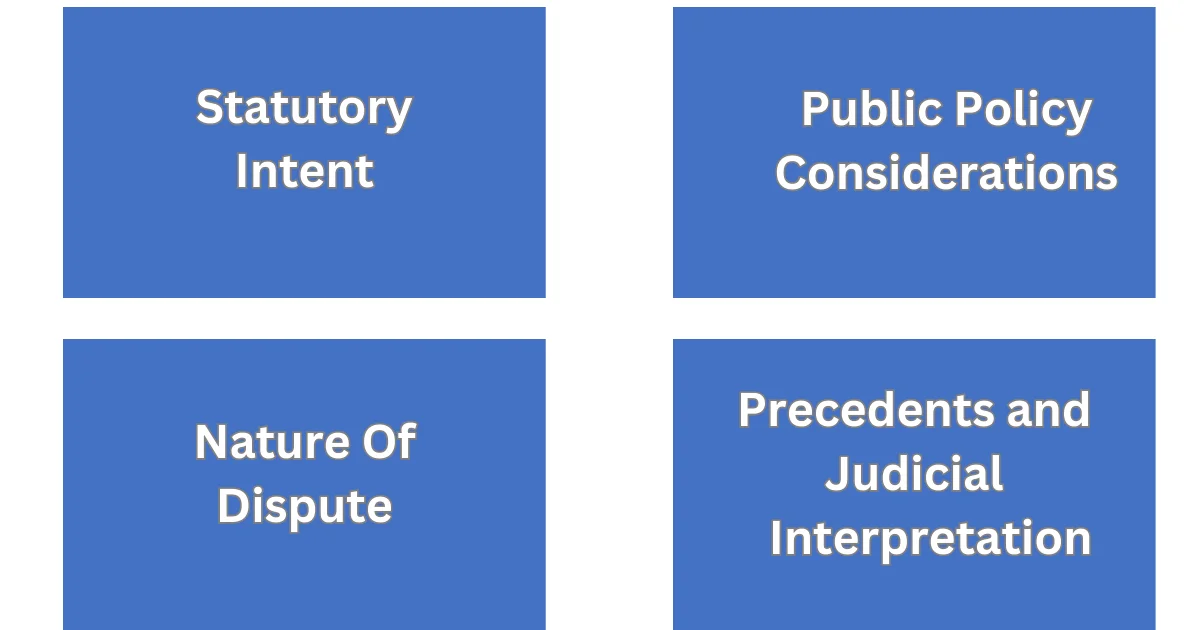
The Indian government enacted, the Real Estate (Regulation and Development) Act, 2016 (RERA) which serves as a legislative framework, designed to protect the interests of homebuyers while fostering accountability and transparency within the real estate sector. Explore this article to understand the arbitrability of flat-buyer disputes under the RERA Act 2016. Discover how this law affects your problems and the options for resolving them. Let’s get the clarification and understand your rights as a homebuyer under the RERA framework.
Table of Content |
Introduction to RERA Act 2016
The Real Estate (Regulation and Development) Act of 2016, commonly known as RERA Act 2016, is a essential legislation protect homebuyers’ interests in India’s real estate sector. The primary purpose of this flat-buyer disputes under the RERA Act is to increase the real estate market’s transparency, accountability, and efficiency. RERA requires that real estate projects and agents should be registered so that to ensure fair practices, timely completion, and conformity to set specification. It provides clear information to customers, offers dispute resolution channels, and imposes severe consequences for noncompliance. This Act transforms the real estate landscape by encouraging confidence and protecting homebuyers’ rights across the country.
Understanding Flat-Buyer Disputes
Flat-buyer issues include a variety of disagreements that arise between homebuyers and real estate developers. These disagreements revolves on issues such as delayed possession, disparities in promised versus delivered facilities, construction quality, changes in project plans, or even pricing and payment schedules. Understanding these challenges necessitates recognizing the disparities between the expectations made during the acquisition and the reality encountered throughout possession. It involves recognizing customers’ legal rights, enforcing contractual compliance, and seeking remedies when these agreements are violated.
Top of Form
Applicability of Arbitration under RERA
Arbitration’s application under the Real Estate (Regulation and Development) Act, often known as RERA, entails determining whether conflicts between flat buyers and developers can be addressed by arbitration. However, the Act primarily focuses on establishing regulatory authorities to adjudicate disputes. Arbitration under RERA might be applicable depending on various factors such as the nature of the dispute, agreements between parties, and the specific provisions outlined in the Act. Exploring the nuances of RERA’s stance on arbitration sheds light on whether this alternative method can be utilized to resolve flat-buyer conflicts effectively.
Impact on Homebuyers’ Rights
In Priyanka Taksh Sood V Sunworld Residency, the Delhi High Court considered provisions that are “Pari Materia” to Section 89 of the RERA Act, such as Section 60 of the Competition statute, Section 81 of the IT Act, the IBC, and so on. The court found that “there is no doubt in the mind of this Court that, giving a purposive interpretation to Sections 79, 88 and 89 of the RERA Act, there is no bar under the RERA Act from application of concurrent remedy under the Arbitration and Conciliation Act, and thus, there is no clash between the provisions of the RERA Act and the A&C Act, as the remedies available under the former are in addition to, and not in supersession of, the remedies available under the A&C Act.”
In Imperia Structures v. Anil Patni, the Supreme Court concluded in 2020 that “the absence of a bar under Section 79 of RERA Act to the initiation of proceedings before a fora which cannot be called a Civil Court, and express saving under Section 88 of the RERA Act, make the position quite clear.” Furthermore, Section 18 states that the remedy is “without prejudice to any other remedy available.” Thus, the parliamentary aim is clear: the allottee on procedures is granted an option or discretion.” As a result, it is suggested that reimbursements of cash paid for allotment are permitted under Section 18 of the RERA Act.
Dispute Resolution through Arbitration
Arbitrability refers to whether a particular dispute can be referred to arbitration based on legal provisions, court decisions, or the nature of the dispute itself. Some key aspects that could influence the arbitrability of flat-buyer disputes under the RERA Act include:

- Statutory Intent: The RERA Act emphasizes the establishment of RERAs to decide disputes. Courts might consider whether the legislature intended RERAs to be the exclusive forum for resolving disputes between flat-buyers and developers.
- Public Policy Considerations: Courts may examine if certain matters, such as issues related to public interest or statutory rights of parties, are best addressed through a specialized forum like RERA rather than arbitration.
- Nature of Dispute: Some disputes involving issues of fraud, criminality, or matters affecting larger public interest might be considered non-arbitrable.
- Precedents and Judicial Interpretation: Court decisions and precedents play a significant role in determining the arbitrability of disputes. Past judgments regarding similar matters might guide whether flat-buyer disputes under RERA are arbitrable.
Conclusion
In simple terms, figuring out if problems between flat buyers and builders can be resolved through arbitration under the 2016 RERA Act is a bit tricky. Adding an arbitration clause in the flat-purchase agreement might lessen the need for arbitration under the Arbitration Act, but the unique nature of the RERA Act makes things complex. However, court decisions, even from the Supreme Court, support the flat buyer’s right to choose their solutions, like arbitration, as long as certain conditions are met. In the end, whether to go for arbitration depends on the specific situation and the people involved.
CS Urvashi Jain is an associate member of the Institute of Company Secretaries of India. Her expertise, inter-alia, is in regulatory approvals, licenses, registrations for any organization set up in India. She posse’s good exposure to compliance management system, legal due diligence, drafting and vetting of various legal agreements. She has good command in drafting manuals, blogs, guides, interpretations and providing opinions on the different core areas of companies act, intellectual properties and taxation.
Categories
- Agreement Drafting (23)
- Annual Compliance (11)
- Change in Business (36)
- Company Law (148)
- Compliance (89)
- Digital Banking (3)
- Drug License (3)
- FEMA (17)
- Finance Company (42)
- Foreign Taxation (6)
- FSSAI License/Registration (14)
- GST (118)
- Hallmark Registration (1)
- Income Tax (199)
- Latest News (34)
- Miscellaneous (164)
- NBFC Registration (8)
- NGO (14)
- SEBI Registration (6)
- Section 8 Company (7)
- Start and manage a business (20)
- Startup/ Registration (127)
- Trademark Registration/IPR (40)
Recent Posts
- Farmer Producer Companies-Major provisions under Companies Act April 26, 2024
- Detailed Analysis of Section 179 of the Companies Act, 2013 April 24, 2024
- Maximise Your Tax Savings: Power of Form 12BB April 23, 2024
About us
LegalWindow.in is a professional technology driven platform of multidisciplined experts like CA/CS/Lawyers spanning with an aim to provide concrete solution to individuals, start-ups and other business organisation by maximising their growth at an affordable cost.







